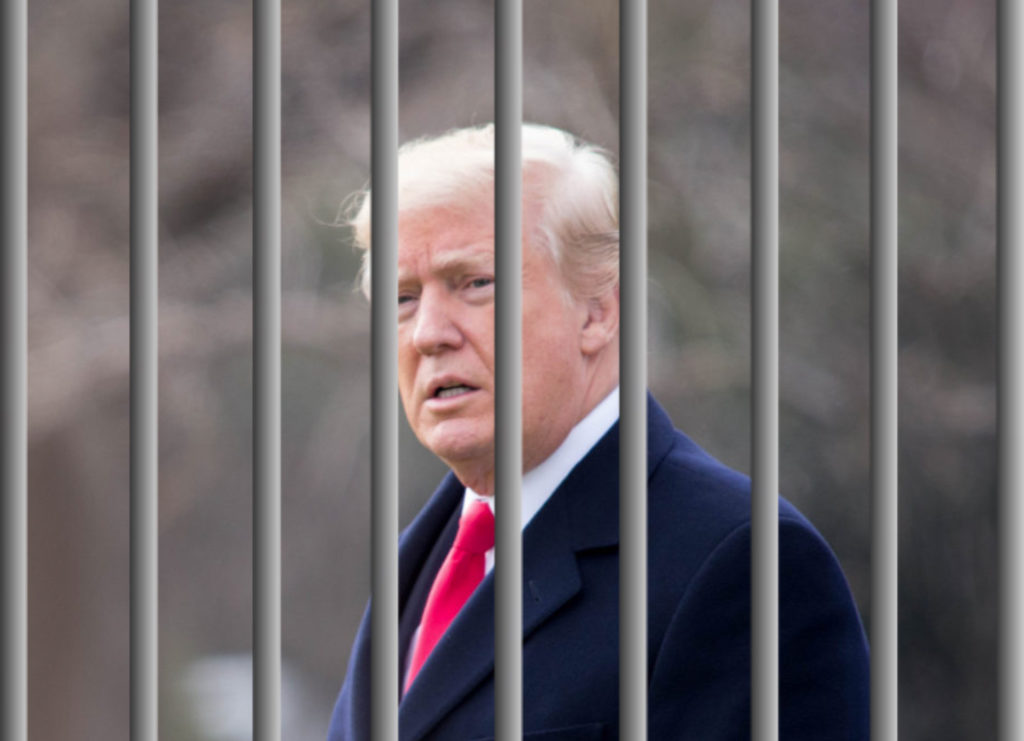The criminal charges Donald Trump will actually face in Manhattan

Outside of the Manhattan District Attorney’s office, no one knows what the precise criminal charges against Donald Trump will be when he’s indicted. Even the star witness, Michael Cohen, has said in TV interviews that he doesn’t know the full breadth of this case, he only knows the parts that he’s involved in. This has set off all kinds of guessing and speculation about what those charges will be.
What we do know is that this criminal case is centered around Donald Trump’s hush money payments through Cohen to Stormy Daniels during the 2016 election. Buying someone’s silence is not generally a crime unless there are aggravating factors. But in the process of paying Daniels to keep quiet, Trump committed two clear violations of the law. He violated campaign finance laws by trying to bury the fact that it was happening. And he violated corporate fraud laws by trying to bury his reimbursement to Cohen.
This gives the Manhattan DA a choice that prosecutors face all the time. Does he indict Trump for campaign finance fraud, or corporate fraud, or both? Observers on social media always righteously demand that Trump be “aggressively” hit with every possible charge, even going so far as to accuse prosecutors of being “cowards” for not throwing in the kitchen sink – but that does not in any way correlate to reality.
In reality, the prosecutor’s job is not to just throw every possible charge at the defendant in order to please social media outrage addicts. The prosecutor’s job is to get a conviction on something. Some charges are much easier to get a conviction on than others. It’s why prosecutors often indict someone on a core criminal charge and a less serious but more convictable charge. The Feds do this all the time, by charging someone with their original crime and with something like obstruction. That way the defendant at least gets convicted on obstruction even if the jury ends up not understanding the original crime, and so justice is (slightly indirectly) served.
But this can also backfire. By including a lesser charge, a prosecutor can unwittingly entice a trial jury to split the difference by convicting on the lesser charge and acquitting on the main charge – even if that jury would have been willing to convict on the main charge if it were the only charge listed.
These kinds of decisions often come down to just how strong the evidence and testimony is with regard to each specific charge. It’s not about whether the prosecutor has a “backbone” or any of the nonsense that gets repeated ad nauseum on social media. It’s about the nuances of actually getting a conviction, which almost never correlate to the simplistic notion out there that prosecutors must be as “aggressive” as possible.
If you want to be in a position to take an educated guess at what kinds of charges Alvin Bragg will bring against Donald Trump next week, start with what you already know about this case, and what you already know about him. He declined to indict Trump for tax fraud last year because he felt that the case’s odds of conviction weren’t that strong without Allen Weisselberg’s full cooperation. Now Bragg is charging Trump in a campaign finance fraud case that has afforded him an array of cooperative witnesses, from Michael Cohen to Kellyanne Conway to the National Enquirer guy.
This tells me that Bragg wants to bring a case he can win. He knows he’ll realistically get one shot at indicting Trump – and he already declined to bring a different indictment against Trump that he didn’t think was worthy of being that one shot. Now he’s settled on his one shot. And you can probably expect him to take the “safe” route of only bringing the charges that are likely to result in a straightforward, comparatively swift, and high probability conviction.
In other words, the folks on Twitter who spend all day demanding that Bragg “throw the kitchen sink at Trump” are likely to be angrily disappointed. But these are generally folks who decline to familiarize themselves with how anything in the legal system works to begin with – and they’re always angrily disappointed at everything anyway.
In contrast, folks who have actually followed the progression of this criminal case, and who actually focus on things like how to successfully get a conviction, are likely to be pleased with the charges that Bragg brings against Trump. It’ll likely be a neat and tidy criminal case that isn’t so complicated that Trump can keep stalling it out in court, and that is near-guaranteed to result in conviction.
What does that translate to in terms of specific charges? Again, that’ll come down to the specific strengths of the evidence and testimony with regard to each potential charge. And while we’ve all been following this particular criminal plot for long enough to feel like we know it inside and out, things look different when viewed in terms of what your evidence and testimony will allow you to 100% prove to a trial jury beyond a reasonable doubt.
But look for something neat and tidy from Bragg, not some riskily ambitious overreach. He is, after all, a local District Attorney who can only work within the confines of state and local laws. Bragg seems more inclined to let the DOJ Special Counsel bring the broadly ambitious criminal case that’ll cover every inch of Trump’s criminal life. Bragg seems to just want to be the first to get Trump convicted and sent to prison – which is fine by us.
